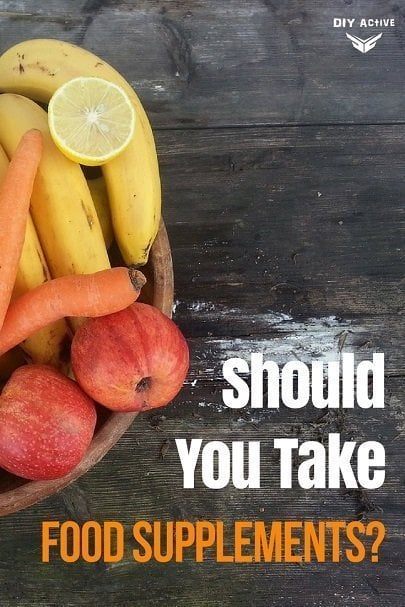
When Are Supplements Good for You?
Whole food sources are the best way to get the necessary nutrients into your body. Still, not everyone has a balanced diet, and many people suffer from allergies that take particular food items off the list. Food supplements can be a solution to this problem, as they contain the nutrients that you don’t get from your regular diet. Supplements include vitamins, amino acids, minerals, herbals, and other products, and you can get them in different forms like capsules, tablets, powders, energy bars, and drinks.
Function and ingredients of supplements
What you need to keep in mind, though, is that they certainly shouldn’t replace real food. Therefore, in this article, we are going to discuss the pros and cons of food supplements.
Food supplements replace the nutrients that are missing from your diet.
The most common dietary supplement is a multivitamin. Next to that, there are various shakes and meal replacement bars. These are often used when people want to lose weight or gain muscle. The right combination of a healthy diet and food supplements can help you accomplish these goals and can diminish certain risks, such as particular chronic illnesses
A multivitamin contains essential minerals such as iron and zinc, as well as vitamins A, B-complex, C, and E. If there’s only a single nutrient that you are missing, then you may opt for just one supplement, like vitamin C or iron.
There are certain supplements that are suitable for specific situations and periods, such as a combination of vitamin D and calcium for strengthening the bones in older people, or folic acid for women who are pregnant.
A simple trip to the doctor or a dietician will let you see what your body is lacking and help you plan accordingly.
Risks when using supplements

You need to be careful when you use food supplements, as a great number contain ingredients that can affect you in a variety of ways.
Unexpected side effects are always a possibility, especially when you have introduced a new supplement into your diet. If you are using supplements as a replacement for prescribed medication or combining too many of them, the risk of harmful side effects increases.
You should always check with your doctor whether the supplements you want to take can interact with the prescribed medications that you are taking.
All nutrients in food supplements can be found in real foods, such as oatmeal and other cereals, vegetables, and animal products. This means that you might actually be taking in more of these nutrients than you should be, and this can harm you.
For example, if you take too much iron, you can experience nausea and damage your liver. Also, an excess of vitamin A can result in headaches, diminished bone strength, and even result in birth defects.
Quality of supplements
According to the FDA, there are good manufacturing practices which are there to guarantee the composition, identity, strength, and purity of your supplements. These manufacturing processes ensure that:
- what is on the label is in the supplement in the quantity stated;
- the correct ingredients have been used;
- there is no contamination; and
- the product is properly labeled and packaged.
Next to the FDA, there are a number of independent organizations that test these products and display their own seals of approval. However, while these seals should ensure that everything is right with the product, that doesn’t mean that it’s going to be effective and safe.
Whole foods or supplements?
If there are no restrictions to your diet, then it is generally preferable to eat whole foods rather than to replace them with supplements. Some of the foods that are perfectly nutritional are ferments, mushrooms, sprouts, berries, and high-quality protein.
Ferments strengthen the digestive system. Yogurt is good, but it can contain too much sugar. The perfect solution for probiotic intake is fermented vegetables. Or, you could go for kvass, kefir, or kombucha.

Sprouts contain a lot of enzymes that catalyze the functions in our body, enabling us to get more minerals, vitamins, and amino acids from food. Sprouts contain a high amount of essential fatty acids and vitamin B. Furthermore, they are alkalizing, meaning that they control the pH value in our bodies.
If you aren’t allergic to mushrooms, you should include them in your diet. They are rich in vitamin B, vitamin D, selenium, and copper. Furthermore, mushrooms have compounds in them that have antiviral, antimicrobial, anti-tumor, and anti-inflammatory traits. They basically alkalize the body. Mushrooms like Chaga, reishi, and cordyceps work as adaptogens—they help with stress and adrenal fatigue.
Berries are extremely healthy because they contain a lot of antioxidants and phytochemicals. The fiber in them regulates cholesterol levels. What is also great about them is that they are low in sugar, and new research suggests that they also maintain bone density.
High-quality proteins are essential to our body. They maintain our skin, bones, and joints, and improve our immunity. Your choice in supplements may be good quality protein powder, but you might also want to consider a diet that consists of protein-rich food such as meat, dairy, eggs, and fish. There are also many vegetarian options like quinoa and chickpeas that are high in protein.
Wrap-Up
In the end, it all depends on circumstances and choice.
If you aren’t allergic to any kind of food and can maintain a proper diet, you should base your nutrition choices on whole foods. Practicing mindful eating can help you get more out of your food as well as ease digestion stress.
If you are someone who needs to replace some of your nutritional sources with food supplements, then knowing what you’re consuming is important.
Just be wary of the possible side effects and risks.
- The Best Ways to Make Exercise More Fun - July 23, 2017
- Dietary Supplement: What Vitamins Should I Take - June 19, 2017



